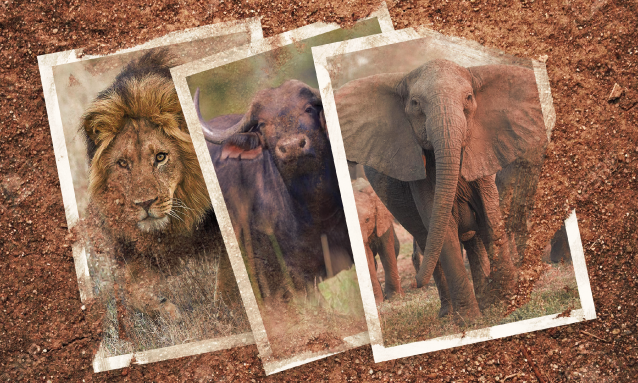
Working early mornings and finishing work late in the evening is taken for granted by many people in Botswana. Not in the Chobe district. For Kasane residents, walking to and from work, a trip to the shops and running errands carries with it risks that residents have to navigate on a daily basis.
Commuting by car does not guarantee safety as motorists regularly grapple with accidents involving members of the big five. Although the Botswana constitution stipulates that nobody is to be denied their freedom of movement, including the right to move freely throughout the country, the elephants in the Chobe region deny residents such freedoms. The uneasy co-existence of humans and wild animals in the tourism paradise, which goes back many years, has now escalated to a national crisis with elephant numbers spiralling out of control.
Attempts to promote and support co-existence for ecological, social and economic benefits have so far borne very little fruit, owing to the fact that the ecosystem’s carrying capacity can no longer cope. Fauna of various persuasions including, but not limited to lions, buffaloes and elephants rule the roost here. While residents, who were born here, are now used to this state of affairs, no person should be made to believe that fatalities involving elephants are normal.
People at the lower end of the economic and social spectrum are even more vulnerable and at risk of elephant attacks. This applies particularly to those who walk to work at dawn such as security guards and those who work in the hospitality industry. The group of long-suffering people includes local farmers, who are forced to look after their domestic animals in the bush, where elephants roam in large numbers.
While in most parts of rural Botswana farmers have it easy, the majority of people in and around Chobe villages – Pandamatenga, Kasane, Mabele, Kavimba, Kachikau, Satau and Parakarungu – have to contend with the harsh realities of the Human-Wildlife Conflict they face on a daily basis. Lowly paid workers are among the people who work anti-social hours, the first to leave for work and the last to get in from work. Due to their socio-economic conditions and the meagre wages they earn, they cannot afford public transport fares. With no choice other than walking to and from work which sees them traversing the animal corridors, they directly put their lives on the line. School children are also at the mercy of wild animals, especially elephants, as they usually go to school and back on foot.
The Chobe area is not under any internecine warfare, neither is it under a constitutional state of emergency. However, come night time, conditions under which residents live are not far removed from those of conflict-riddled areas. While Batswana in other rural areas move freely at night and in the early hours of the morning, for Chobe residents, this remains a luxury. Those who defy this involuntary curfew do so at the risk of losing their lives, courtesy of wild animals such as elephants which roam the whole area after sunset. A night stroll around the villages can be fatal, with many having already been laid to rest.
A local woman was lucky to tell the tale of her lucky escape. One day, going about her business as she normally does along the ‘staircase’ in Plateau, little did she know she would be trampled by a buffalo. Only, mother luck shone on her unlike many others before her, as she was saved by a ditch she fell into during the attack. Thinking that she was likely to be dead, the buffalo took turns grazing and checking on her as if to confirm she was indeed dead. But luckily, she escaped with her life.
The Jumbos have declared a state of emergency in and around the whole area and failure to adhere to their jungle law has seen many people meet their maker. In Kasane, a prime tourism destination and the epicentre of luxurious hotels, lodges and camping sites, the situation is not different.
Every year, in the Chobe Enclave villages of Mabele, Kavimba, Kachikau, Satau and Parakarungu, where conservation agriculture is practised along the Chobe River, elephants destroy farmers’ produce, in the process impoverishing them and threatening their food security.
While farmers bear the brunt of the elephant population explosion, global conservation NGOs are furious at the government’s consultations on the lifting of the Hunting Ban. While the acknowledge that Botswana’s Human-Wildlife Conflict is very real, they argue that trophy hunting and elephant culling do not deter poaching and would not address the Human-Elephant Conflict.
Their argument is that trophy hunting is detrimental to wildlife conservation. While they vouch for a science-based and sustainable elephant management plan, farmers continue to suffer as their agricultural production continues to be undermined year in year out. After the cabinet sub-committee submitted its report on consultations with communities, there was a huge global outcry by conservation groups. However, the government, led by President Dr Mokgweetsi Masisi and other Kavango-Zambezi Transfrontier Conservation Area(KAZA TFCA) heads of states are determined to find a lasting solution to the elephant problem.
Kgosi Morgan Makhanga of Kazungula has lived long enough to have experienced the full extent of the destruction and havoc the elephants have wreaked on his village over the years. He buried two of his herd boys who were killed by elephants in 2005 and in 2015 respectively. The pain is still fresh in his mind because one of them was killed within the village while herding cattle. The traditional leader has seen his people give up on farming, brought down through generations through the years.
“If you go to the Chobe River bank where we practised Molapo farming you will realise that people have surrendered their farms to business owners. When they could not stomach the destruction of their crops by elephants, they sold their farms to other people who have now built lodges along the river. We are poor and my people have to rely on the *Ipelegeng Program for sustenance,” he begrudgingly said.
Kgosi Makhanga argues that the elephant issue was not always like this before the Hunting Ban and advocates for the return of conservation hunting in the Chobe to reduce the ballooning numbers.
“The government should bring back hunting because when that happens, elephants move away from human settlements and the conflict is minimised. We cannot be expected to co-exist with the animals that bring death and sorrow to our lives,” he said.
He also said the elephants destroy fruit trees in homesteads, transforming their homes into agricultural museums with ploughs that serve no purpose. While acknowledging that they are used to living with animals, Kgosi Makhanga believes that it’s time communities benefited from the elephants. He highlighted that another option is for the government to erect an electric fence around residential areas and allow animal corridors to prevent the elephants from roaming the village on their way to the river to drink water. He asserted that the Hunting Ban had destroyed livelihoods in that the Kazungula, Lesoma, Pandamatenga (KALEPA) Trust has all but collapsed.
Kgosi Makhanga said when the trust was functional, it raised money for developments in the village. He said when the trust collapsed, it had just entered into an agreement to purchase a campsite in Lesoma. Consequently, due to lack of revenue, the whole project failed.
Vehicles belonging to the trust also had to be auctioned. The traditional leader said that while the collapse of the trust is gutting, it is the collapse of the agricultural sector that’s the most bitter of pills to swallow.
“As a Motswana, if you don’t farm in rural areas you end up a pauper. The eviction of farmers from their fields is difficult to bear as most of them still harbour ambitions to grow their own food,” he asserted.
The KAZA TFCA region accounts for about 50 per cent of the African elephants, with the SADC region hosting 293,000. Botswana is leading with over 130,000 while Zimbabwe is second with 80,000 elephants.
The Botswana government believes that conservation hunting can go a long way in reducing the Human-Elephant Conflict as was the case before the Hunting Ban was introduced in 2014.
It is within this spirit that President Dr Masisi invited other heads of states from the KAZA conservation area to discuss a common approach towards the management of elephants. The objective was to formulate an elephant management strategy that the KAZA TFCA region will present at the CITES CoP 18 meeting in Sri Lanka.
Owing to the uproar from Western countries, the 2019 elephant summit has reaffirmed its commitment to engage the global community which forms the backbone of the local tourism industry, to understand the challenge of an exploding elephant population that has blown beyond control and its impact on local communities. The heads of states also committed to ensuring that communities that are on the receiving end of the Human-Wildlife Conflict benefit from sustainable natural resources management.
Source: BOPA



